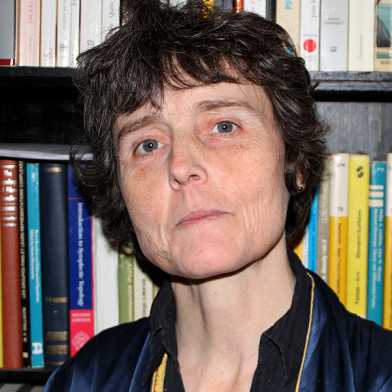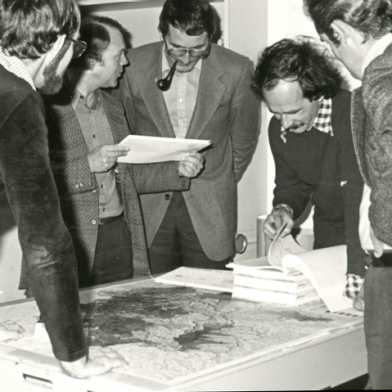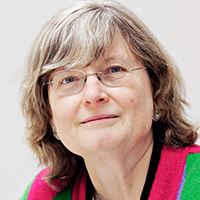October 2015
Heinz Hopf Prize for Claire Voisin
- News
- ETH News

In the field of research into algebraic geometry, French mathematician Claire Voisin is something of a legend: in recognition of her scientific breakthroughs, the Department of Mathematics at ETH Zurich will be awarding her the Heinz Hopf Prize on 2 November 2015.
Vision zero: why we have to reduce our CO2 emissions to zero
Zukunftsblog

Every climate target gives us a permissible emissions budget. Achieving the two-degree Celsius goal will require complete decarbonisation of the economy within the next 50 years. It will not be enough for us to make existing processes more efficient – a profound change in nearly all aspects of our society is required.
Congratulations with a hoodie
- News
- ETH News

Bachelor students who passed their first-year examinations were given a special hoodie from ETH Rector Sarah Springman – as congratulations for passing their exams but also to strengthen the students' bond with their university.
Vorkämpfer, Vordenker und Vorbilder für die Raumplanung Schweiz
Zukunftsblog

Die Schweizer Raumplanung kann für die anstehenden Aufgaben viel von ihren Pionieren lernen. Diese setzten sich leidenschaftlich für einen Schutz der Landschaft und die nachhaltige Planung und Gestaltung des Lebensraums ein. Mit der Ausstellung «Die Schweiz plant» eröffnet die ETH Zürich erstmals einen Blick auf diese Pionierleistungen.
One click away from the perfect outfit
- News
- ETH News

Whether shopping online or offline, everyone knows how difficult it can be to find the right outfit. Fashwell, an ETH spin-off, now has a remedy for that. Its app unites social media and online shopping to help users track down the clothes they like.
Potato harvest reduced by half
News

On the way from field to fork, more than half of the potato harvest is lost. This is according to a new study conducted by researchers from Agroscope and ETH Zurich.
Computing for Climate (part 2): How Modern Climate Models Work
Zukunftsblog

In our previous blog we drew an arc in time from the first theoretical weather computation to present-day climate calculations on massively-parallel computer systems. This follow-up post deals with the climate models and addresses the basic question: How can we simulate the evolving condition of the atmosphere?
Using applied mathematics to track down counterfeits
- News
- ETH News

At this year’s Pauli Lectures, mathematics professor Ingrid Daubechies will offer an insight into her research on wavelets and digital signal processing. Among other applications, she uses these two fields to unequivocally identify forged Van Goghs.
Computing for Climate (part 1): Evolution of Models
Zukunftsblog

The desire to foresee the weather and climate probably goes back to early mankind. Whereas experience in reading the signs of weather changes has long helped for short-term predictions of a few hours, it is only for a few decades that we have been able to forecast weather over several days – and simulate the future climate.
Ensuring digital information does not get lost
- News
- ETH News

Today ETH Zurich is launching its IT Security Initiative under the slogan, “Protect your Brainwork”. This initiative aims to provide tips to staff and students of ETH Zurich on how to safeguard their data.